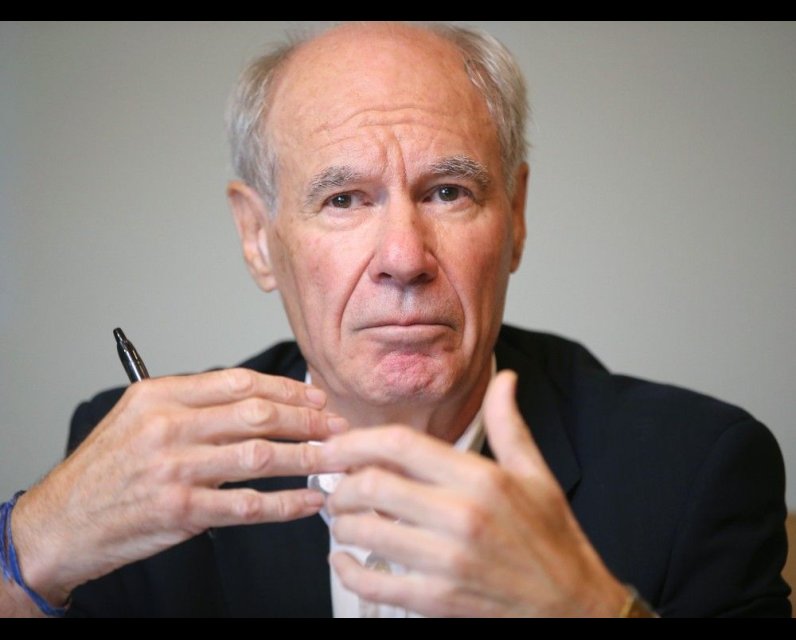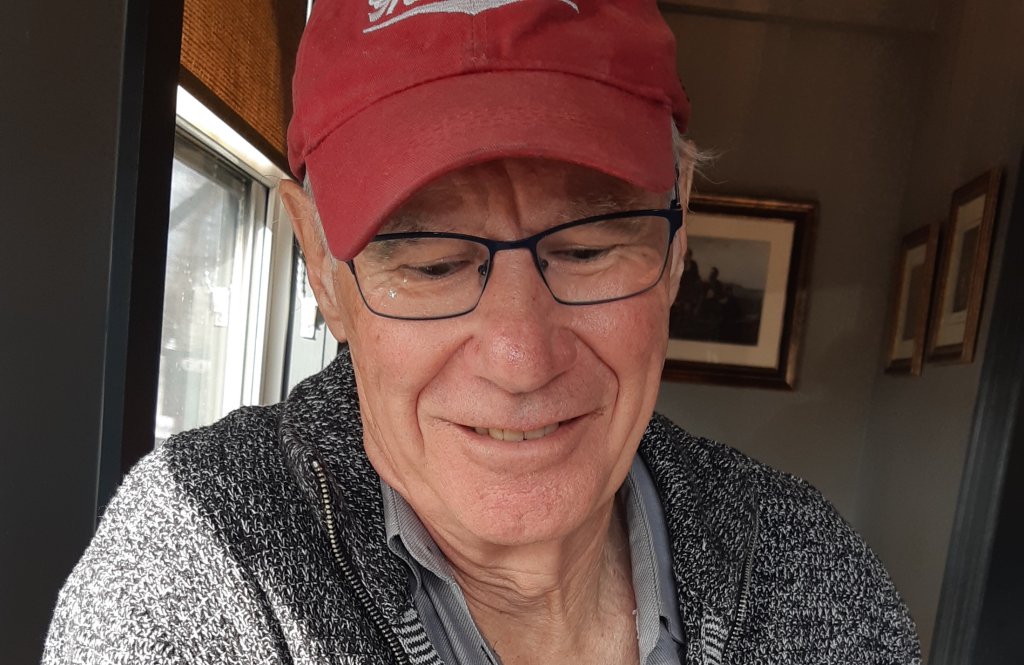Unpublished Opinions
Clive Doucet is a distinguished Canadian writer and former Ottawa city councillor. He was elected for four consecutive terms from 1997 to 2010 when he retired to run for Mayor. As a city politician he was awarded the Gallon Prize as the 2005 Canadian eco-councillor of the year. He was defeated twice by Jim Watson in 2010 and 2018 when he ran for the Mayor’s chair.
The Watsonics, Part I: Walking through the door

"The debates at City Council are window dressing. Everything important at City Hall is decided long before it ever rises to Council, and under the mayors who would replace Mr. Chiarelli, this became an iron rule." —Clive Doucet
When I first ran for city politics, I ran because of the six-lane, Bronson Expressway which the city was planning to ram though our old neighbourhood from porch to porch. This is what had happened in Lower Town when a beautifully treed King Edward boulevard was turned into an asphalt rail line for inter-city trucks. Today, upwards of 3000 trucks go through the old Lower Town neighbourhoods and the livability has been largely destroyed. It has the lowest air quality in the city. We didn’t want to see this happening to all the communities which border on Bronson. I had never been in politics before and never had any ambition to be, but I lived just a short block from Bronson and didn’t want to see myself suddenly living beside an urban freeway. I was up against some formidable candidates in Capital Ward and no one gave me much of a chance, but to everyone’s surprise I won. That was the 1997 regional municipal election.
At Council, we defeated the Bronson Expressway by converting a disused train line that ran parallel to Bronson Avenue into an urban surface system—LRT. We did this in 3 years without disturbing anyone and without costing much -- $20 million. That’s the cost of single, freeway intersection. Those were great days. It felt like I was on top of the world and best of all it was going to be a new world. One where Ottawa’s famous street rail system, the most sustainable transit system in the entire country with the streetcars built in the City of Ottawa, powered by green electricity from the Ottawa river and serving every part of the city. It was my dream to re-establish a modern version of this old system and connect all parts of it to the city with fast, modern LRT.
In that 1997 election, Bob Chiarelli, the man elected as Regional Chair, was also new to Council. We shared much the same vision of how to rebuild the city for a more sustainable world. Unlike myself, he was an experienced and battle-hardened politician who governed well, but within his political traces. I didn’t. I didn’t have any strong partisan connections, but sometimes naivety and good intentions can go a long way. Bob was canny enough to realize I could be useful to him, and he often used me to test waters that he was sympathetic to but fearful of the political fall-out. The LRT came under that category. He liked the idea and supported it but was always nervous about the suburban vote on Council where the support was thin for anything perceived as inner-city driven. By nature, I’m not combative, but I developed a reputation for being so because often my positions conflicted with the suburban councillors.
Those first Council years, 1998-2006 were very proud years. The Chair (later Mayor, post-amalgamation) supported by a small shifting group of progressive councillors, actually ran the City pretty much the way he wanted. For once, the City’s big money interests took a back seat.
Although Mayor Chiarelli was adept at supporting his backers, they gradually realized that things were not the same at City Hall and the City’s projects were not moving forward to their exclusive advantage. The hoteliers didn’t want downtown streets torn up for an LRT street service which would impact their front doors. They wanted something out of the way and began to lobby hard for a very deep tunnel. The developers didn’t want to compete with anyone for the redevelopment of Lansdowne Park. They wanted a non-competitive process, preferably something that just gave the land to them for a downtown mall which they were already planning. Bob wasn’t prepared to budge on these issues, so they decided it was time to push him out of the way.
My problem was Capital Ward is at the geographic heart of Ottawa and almost any project impacts it directly. This called me out and often put me in the news cycle. It also meant my position was fragile because I became the target. The developers’ media people liked to call me "Captain Chaos" as I seemed to be always in the way of their projects.
During the struggle to save Lansdowne Park as a public space (instead of a mall), our office received many ugly texts and messages. Fortunately, this is Canada, and no one threatened gun violence, but it was also on the edge of that territory. The old children’s rhyme, "sticks and stones can break my bones, but names will never hurt me" wasn’t exactly true. Verbal violence did hurt. It put everyone on edge. You never really knew if or when it would spill into something worse. I remember a photo in the press of a huge, heavily muscled football supporter towering over a small woman screaming something at her as she took part in a demonstration asking the city for a competitive process instead of a giveaway. He didn’t physically touch her, but the intensity of the hostility captured what we lived in my office every day for years. Such is some of the flavour of my first 8 years as an Ottawa City Councillor.
All-in-all they were great years, but it would all change when Bob Chiarelli was defeated in 2006 and replaced by the usual developer-friendly candidate. Suddenly, we went from a one or two vote majority on Council to a one or two vote minority and all our projects went off the rails. In the case of the LRT, it was literal. The contract with Siemens International for a surface street rail system was torn up and planning for a tunnel commenced. I went from being on the inside of City Hall to being on the outside. The new Mayor was not interested in my opinions as the old political order in Ottawa snapped back into place.
The Watsonics is an account of that snapping back. I don’t expect my memories of these years will change anything. If I couldn’t do it when I was on Council or ran for Mayor, surely, I can’t do it now; but the story needs to be told because the first step in changing City Hall is understanding what the old narrative was really about. Without that, nothing really changes.
I didn’t really understand any of this when I was first elected. Like an undergraduate, I thought winning at politics was all about winning the argument around the Council table as we had done with surface LRT versus creating the Bronson Expressway in the community. I couldn’t have been more wrong. The debates at City Council are window dressing. Everything important at City Hall is decided long before it ever rises to Council and under the mayors who would replace Mr. Chiarelli, this became an iron rule. In the Watsonic years, most councillors didn’t even know what they were voting on. Vital information was withheld entirely, or so delayed by the time it arrived it didn’t mean anything.
Early on during the struggle to save Lansdowne Park, I asked for a copy of the letter from the CFL President saying they required a new football stadium to be at Lansdowne. Something like 18 months later a letter finally was made available for public view. There was no requirement for the stadium to be built at Lansdowne in it, at all. The CFL just wanted a new stadium. It could have been anywhere, but by then it was way too late to turn the ship around. Which is why I suspect the letter was finally released.
This has happened so often it has become normalized. People don’t expect Council to be effective. Public delegations at City Hall have remained in place but serve no purpose except to slow the process of getting the ritual vote to Council. Sometimes, people noticed that the mayor had trouble staying awake.
I was elected mostly in utter ignorance of what it meant to be a City Councillor. This is normal. No novice councillor ever understands exactly for what he or she has signed up. City politics is like being parachuted into a high volume, immensely busy restaurant kitchen. The mayor is the lead chef and there’s incoming at you from every direction. Your constituents, lobbyists, City staff, your colleagues on Council, all throwing out demands and requests like bullets. City politics is the opposite of federal politics where everything takes years to happen. City Council is the short order kitchen. Your world can change on a dime. Sometimes, not even a dime.
The Mayor decided to disregard the recommendation of the NCC to build the new hospital at an old federal office site without even bothering to bring his decision to Council. He chose the Experimental Farm, a Canadian heritage site, next to a UNESCO World Heritage Site. The Farm makes no sense whatsoever for anything but recreation because it’s on a fault line (Gloucester) which from time to time trembles the entire city. The farm is also a much-loved recreation landscape in the City centre near where the arboretum was invented, and where more than 700 full canopy trees will come down. No one on Council said boo. Now that’s control.
I found Council to be a terrifically exciting place but also frightening in the responsibility. One single vote on Council could change the life of every citizen tomorrow, not in 10 years. Re-treeing Ottawa after the ice storm was desperately needed. The trucks were loaded up with saplings and ready to roll for there was lots to be done, but first Council had to vote the millions needed for the job. The debate was long and acrimonious. The rural councillors didn’t see why we should spend a nickel on tree planting. It was a waste of time and money. The urban councillors understood city streets without trees were hot, soulless, ugly places. Yet, we came very close to losing that vote. There was a one vote difference between re-treeing the city and not. I would quickly learn this kind of vote happened all the time. There was so much to learn.
Clive Doucet served as Capital Ward’s City Councillor from 1997 to 2010. He ran for Mayor twice in 2010 and 2018. His last book is Grandfather’s House, Returning to Cape Breton. The Watsonics is a nine part political memoir being published in instalments, here first on Unpublished.ca.
More in this series...
The Watsonics, Preface: A hard slap >
The Watsonics, Part II: Looking Back >
The Watsonics, Part III(a): Battle at the Ol' Cattle Castle >
The Watsonics, Part III(b): Amalgamation Squashes Democracy >
The Watsonics, Part IV: Grandfather's Farm >
The Watsonics, Part V: Reality Vs. Idealism >
The Watsonics, Part VI: Ottawa—A Reflection Of Ancient Uruk In Canada >



Comments
Be the first to comment